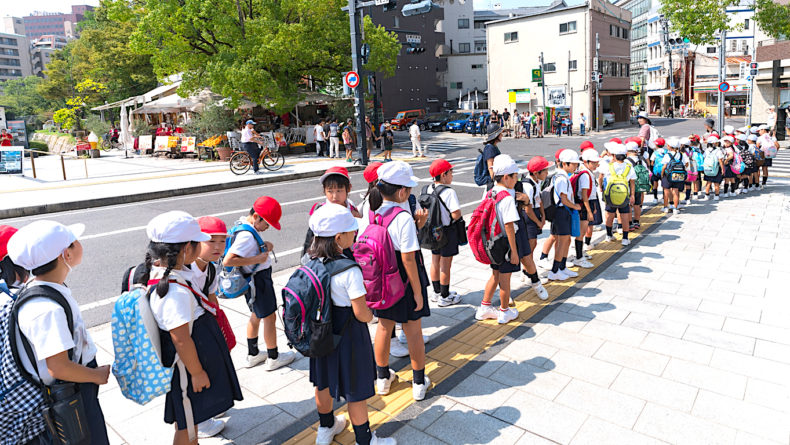Confessions & Confusions: 3 Common Questions On Adoption
Essential Answers To Questions Every Prospective Adoptive Parent Has
This month's questions: Should we adopt a mixed-race child and should we try to know a lot about the birth parents? What should we be ready for?
Recently, I’ve been in contact with a couple who after failed attempts at IVF has now been considering adoption. We communicated by phone recently and the questions they asked reminded me of how little I knew when my husband and I were first thinking of adoption.
“Should we adopt a mixed-race child?”
The couple, mixed-race themselves, is hoping for a mixed-race baby and as much information as possible about the birth parents. Was this too much to ask, they wondered. Was it even possible?
When my husband and I first began thinking of adoption back in 2006, we also thought it would be a good idea to get a mixed-race child so that people wouldn’t question the child’s parentage and would make the assumption that the child was our birth child. We also thought that a mixed-race child with mixed-race parents wouldn’t “side” with one parent’s ancestry more than the other’s. Yes, we were naive.
Adoption, like birth parenting, is a crap shoot. You take what you get and you deal with whatever comes up. If mixed-race children grow up in Japan, no matter what they look like on the outside, it is highly likely that they will identify with their Japanese self. When I taught in another prefecture, one of my students was a mixed-race child of Japanese-American ancestry. His father lived in the US and his mother in Japan, together with my student. On the first day of school, when we asked all our department’s first-year students to introduce themselves, he said — and I will never forget — “My name is American and I look more American than Japanese, but in my heart I am Japanese, so please treat me that way.”
A friend of mine, also American, is married to a Japanese national and they have two children. One son identifies with his foreign side and enjoys traveling and learning languages. The other has no interest in that at all and prefers to identify as and speak Japanese.
Adoption, like birth parenting, is a crap shoot. You take what you get and you deal with whatever comes up.
So, even if a mixed-race child is adopted as a baby, there is a strong possibility that the child will prefer to identify with her/his Japanese side and try not be different from other children. That’s not to say that that’s a fixed state of affairs, as there are adopted Japanese children who, after becoming adults, happily identify with their foreign parent and appreciate having had a different life experience from other children. But kids will be kids and that means they’ll want to fit in.
I recommended that the couple contacts a for-profit organization called International Social Services Japan, which helps place a number of mixed-race or stateless children with families. The latter is a big consideration, though, because those children, having no passports, may not be entitled to services Japanese nationals receive, such as health care, and education. Unlike in other countries, just having been born in Japan is no guarantee of citizenship. The situation may require the involvement of lawyers and/or the need of the foreign parent to adopt the child back in her/his country of birth and then bring the child back to Japan.
“Should we find out about the birth parents?”
Finding out about the birth parents is another issue that needs to be considered. Of course, agencies will tell you as much as they can about the birth parents, depending on the information they have. However, if the children are left in a baby post anonymously, this may be next to impossible to find out.
But while it’s helpful to know as much about the birth parents as possible, a child’s health and personality can also be a matter of chance. My foster daughter is a case in point. We know a little about her birth mother, but nothing at all about her father. When Natsumi first came to us we were told that she had a variety of social, emotional, and learning disabilities, but after a year and a half with us, she is thriving, because we are parenting her in the best way we can. What we learned about parenting from books and foster parenting courses, I believe, would help anyone become a better parent.
“What should we be ready for?”
One of the parents I spoke to is getting close to the mid-century point, although the other is still well within the age limit for adopting a child (45). Yes, it would be very tiring, I told them, because parenting is tiring. No way around it. Teamwork is key.
No matter how flawed a parent you think you might be, you are way better than an institution.
I would also say that they and other parents considering adoption should have put their wishes aside, because the child becomes the first priority, especially if a harmonious household is desired. I recommend that they volunteer at an institution or see if they could do weekend fostering, just to get a taste of the demands of parenting (although kids who go in for weekend fostering are usually on their ultra-best behavior – as we found out), but at least they can see if they really want to be parents or not.
So, if you are thinking of becoming an adoptive or foster parent, I recommend that you honestly think about your reasons for doing so, contact various agencies, get as much information as possible, and, like we did, take the plunge. I remember back in the first days of fostering, a friend of mine, who used to be a psychologist, said, “No matter how flawed a parent you think you might be, you are way better than an institution.”
“Confessions & Confusions” is Melodie Cook’s regular column on adoption and fostering in Japan. Here, she answers questions from potential adoptive or foster parents, those who have already been through the system or any parents who just need to let off some steam. Got a question? Leave a comment or send us an email at editorial@gplusmedia.com.















Leave a Reply